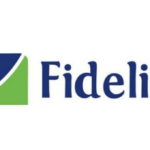Data Governance (DG) is the process of managing the availability, usability, integrity and security of the data in enterprise systems, based on internal data standards and policies that also control data usage.
Effective data governance ensures that data is consistent and trustworthy and doesn’t get misused. It’s increasingly critical as organisations face new data privacy regulations and rely more and more on data analytics to help optimise operations and drive business decision-making.
Data experts said a well-designed data governance programme typically includes a governance team, a steering committee that acts as the governing body, and a group of data stewards. They work together to create the standards and policies for governing data, as well as implementation and enforcement procedures that are primarily carried out by the data stewards. Ideally, executives and other representatives from an organisation’s business operations take part, in addition to the IT and data management teams.
While data governance is a core component of an overall data management strategy, organisations need to focus on the expected business benefits of a governance programme for it to be successful, independent consultant Nicola Askham wrote in a January 2022 blog post. Eric Hirschhorn, chief data officer at The Bank of New York Mellon Corp., made the same point in a session during the 2022 Enterprise Data World Digital conference. “Outcomes can’t just be good governance,” he said. “Outcomes have to be running better businesses.”
- How to prevent electric fire – Fire service
- Why data governance matters in Nigeria’s digital economy
This comprehensive guide to data governance further explains what it is, how it works, the business benefits it provides, best practices and the challenges of governing data.
Why data governance matters
Without effective data governance, data inconsistencies in different systems across an organisation might not get resolved. For example, customer names may be listed differently in sales, logistics and customer service systems. That could complicate data integration efforts and create data integrity issues that affect the accuracy of business intelligence (BI), enterprise reporting and analytics applications. In addition, data errors might not be identified and fixed, further affecting BI and analytics accuracy.
Poor data governance can also hamper regulatory compliance initiatives. That could cause problems for companies that need to comply with the increasing number of data privacy and protection laws, such as the Nigerian Data Policy Regulations (NDPR), European Union’s GDPR and the California Consumer Privacy Act (CCPA).
An enterprise data governance programme typically includes the development of common data definitions and standard data formats that are applied in all business systems, boosting data consistency for both business and compliance uses.
Data governance goals and benefits
A key goal of data governance is to break down data silos in an organisation. Such silos commonly build up when individual business units deploy separate transaction processing systems without centralized coordination or an enterprise data architecture. Data governance aims to harmonise the data in those systems through a collaborative process, with stakeholders from the various business units participating.
Another data governance goal is to ensure that data is used properly, both to avoid introducing data errors into systems and to block potential misuse of personal data about customers and other sensitive information. That can be accomplished by creating uniform policies on the use of data, along with procedures to monitor usage and enforce the policies on an ongoing basis. In addition, data governance can help to strike a balance between data collection practices and privacy mandates.
Besides more accurate analytics and stronger regulatory compliance, the benefits that data governance provides include improved data quality; lower data management costs; and increased access to needed data for data scientists, other analysts and business users. Ultimately, data governance can help improve business decision-making by giving executives better information. Ideally, that will lead to competitive advantages and increased revenue and profits.
Who’s responsible for data governance?
Writing in www.techtarget.com, Craig Stedman and Jack Vaughan said in most organisations, various people are involved in the data governance process. That includes business executives, data management professionals and IT staffers, as well as end users who are familiar with relevant data domains in an organization’s systems. These are the key participants and their primary governance responsibilities.
Chief data officer. The chief data officer (CDO) — if there is one — is often the senior executive who oversees a data governance program and has high-level responsibility for its success or failure. The CDO’s role includes securing approval, funding and staffing for the program; playing a lead role in setting it up; monitoring its progress; and acting as an advocate for it internally. If an organisation doesn’t have a CDO, another C-suite executive will usually serve as an executive sponsor and handle the same functions.
Data governance manager and team
In some cases, the CDO or an equivalent executive — the director of enterprise data management, for example — may also be the hands-on data governance program manager. In others, organizations appoint a data governance manager or lead specifically to run the program. Either way, the program manager typically heads a data governance team that works on the program full time. Sometimes more formally known as the data governance office, it coordinates the process, leads meetings and training sessions, tracks metrics, manages internal communications and carries out other management tasks.
Data governance committee
The governance team usually doesn’t make policy or standards decisions, though. That’s the responsibility of the data governance committee or council, which is primarily made up of business executives and other data owners. The committee approves the foundational data governance policy and associated policies and rules on things like data access and usage, plus the procedures for implementing them. It also resolves disputes, such as disagreements between different business units over data definitions and formats.
Data stewards
The responsibilities of data stewards include overseeing data sets to keep them in order. They’re also in charge of ensuring that the policies and rules approved by the data governance committee are implemented and that end users comply with them. Workers with knowledge of particular data assets and domains are generally appointed to handle the data stewardship role. That’s a full-time job in some companies and a part-time position in others. There can also be a mix of IT and business data stewards.
Data architects, data modelers and data quality analysts and engineers are usually part of the governance process, too. In addition, business users and analytics teams must be trained on data governance policies and data standards, so they can avoid using data in erroneous or improper ways. You can learn more about data governance roles and responsibilities and how to structure a governance program in a related article by technology writer George Lawton.
On the technology side, data governance software can be used to automate aspects of managing a governance program. While data governance tools aren’t a mandatory framework component, they support program and workflow management, collaboration, development of governance policies, process documentation, the creation of data catalogs and other functions. They can also be used in conjunction with data quality, metadata management and master data management (MDM) tools.
Data governance implementation
Data governance should be a strategic initiative for organisations. In an article on creating a data governance strategy, Donald Farmer, principal of consultancy TreeHive Strategy, recommended a series of steps to take, including the following to-do items: identify data assets and existing informal governance processes; increase the data literacy and skills of end users; and decide how to measure the success of a governance program.
Before implementing a data governance framework, another step cited by Farmer is identifying the owners or custodians of different data assets across an enterprise and getting them — or designated surrogates — involved in the governance programme. The CDO, executive sponsor or dedicated data governance manager then takes the lead in creating the program’s structure, working to staff the data governance team, identify data stewards and formalize the governance committee.
Data governance will ensure maximum value derivation from digital economy – DG NITDA
As data affects how we make decisions on the path to creating a sustainable future especially in the post-COVID-19 era and the emerging challenges, the Director General, National Information Technology Development Agency (NITDA), Kashifu Inuwa said that the governance of data and how Nigeria as a country seeks to position herself in this agenda is key to ensuring that maximum value is derived, and provide the needed support for the thriving innovation ecosystem.
Inuwa who was represented by the Acting Director, Digital Economy Development Department (DED), Engr. Salisu Kaka made this statement while delivering his welcome address at a stakeholders’ engagement on the Draft National Data Strategy (NDS) organised by NITDA in Abuja.
Speaking on the Draft, Inuwa noted that the strategy seeks to create an enabling environment for access to data to develop the digital economy, adding that it also supports the development of Data Infrastructures, Data for Public Good, Open Government Data, Data Privacy and Protection, and Upskilling Nigerians in both public and private sectors”.
The DG added that data collection/acquisition, transmission, storage/warehousing, processing, use, and protection must be carried out in a manner that is respectful of the rights enshrined in the constitution of Nigeria, and Data Protection Bureau (NDPB) has also been created to further mainstream data privacy and Protection.
Presenting the Nigeria Data Strategy to stakeholders a NITDA staff, Mr. Lukman Lamid said “the essence of the engagement is not just to have an excellent document but one that can be implemented”.
He said the vision of NDS is “to make Nigeria one of the top leaders in the global data economy translating into prosperity of all.”
Mr. Lamid explained that, “the mission of the NDS is harness the economic and social values of data for the advancement of Nigeria”.
With additional information from www.techtarget.com

 Join Daily Trust WhatsApp Community For Quick Access To News and Happenings Around You.
Join Daily Trust WhatsApp Community For Quick Access To News and Happenings Around You.

